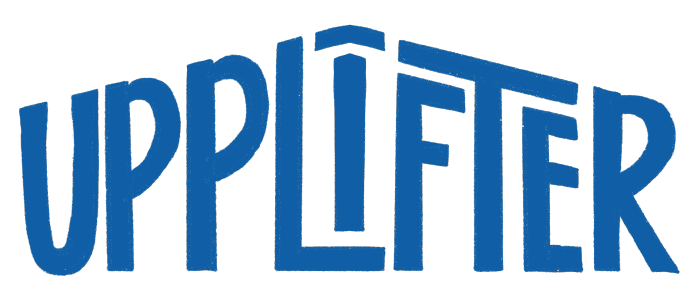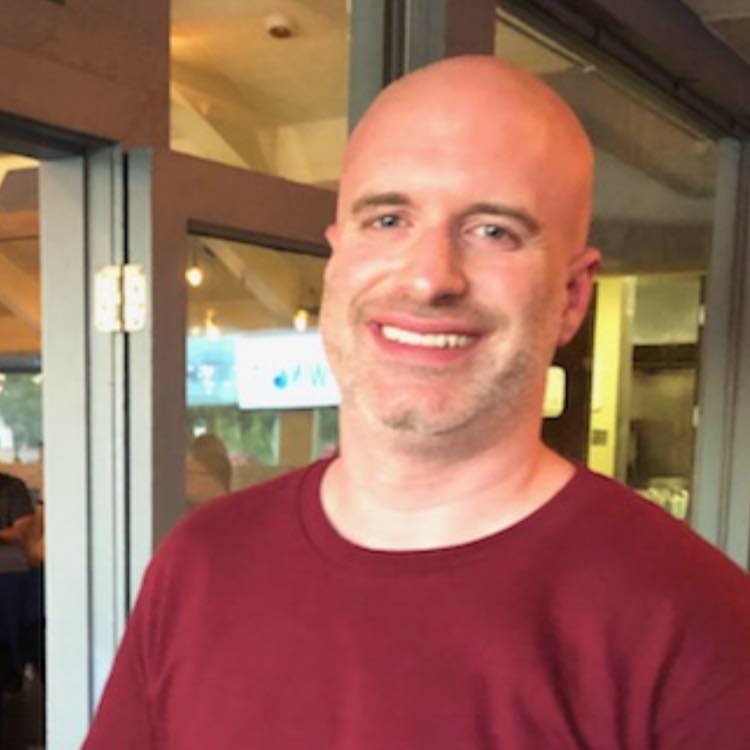We all practice them every day.
Whether it’s waking up at a specific time, watering the garden in the afternoon, or chain-smoking cigarettes after a night of drinking, habits run every aspect of our lives.
The frightening thing about habits is that once they are acquired, they are challenging to break.
“Just one time” can turn into years of substance abuse.
A few weeks of late-night junk food can turn into decades of unhealthy nutrition.
And one “I’m not in the mood” can turn into months of no exercise if you aren’t careful.
These are just a few of the unlimited number of examples of small choices turning into concrete habits.
But there is a flip-side, another perspective.
Habits can work in our favor.
They can change our lives, both internally and externally. Habits can make the difference between hitting the game-winning shot and losing, achieving success at your new job and creating a healthier life for yourself. Habits don’t just define us; in essence, they become us. If we let too many of those pesky little unhealthy habits creep in – they will eventually create chaos, dysfunction, and pain.
TACO TUESDAY EVERY DAY
In my late twenties, I moved to Los Angeles to chase my dreams of being the next Larry David.
My journey began with a two-thousand-mile drive cross country. At the time, quitting my job and moving cross country had been the most liberating moment of my entire life. And when I finally arrived in the City of Angels, it was quite a roller coaster ride of emotions. The first eight months of that journey was filled with ups and downs.
After spending the first five weeks at my cousin’s place near the ocean in Venice, I moved into a small, run-down studio apartment in Culver City. One of the first places I saw on my way to this new apartment was the infamous “Tito’s Tacos” stand in Culver City. It’s consistently rated one of the best taco spots in LA.
It was now a 30-second walk from my new place.
In the coming months, I encountered many obstacles at my job, my apartment, and in my own life. These obstacles got me down, depressed, and created a monster case of severe anxiety.
One of the few things that made me happy was walking out of my apartment, crossing the street, and heading towards Tito’s. I usually ordered the meat and cheese burrito, two regular tacos, and it came with a side of chips and salsa. And boy, was it delicious!
But there was one problem. It was also loaded with unhealthy calories. Oh…and going there three or four times per week became a habit.
I soon gained weight, lost my drive to work out as much or eat healthily, and eventually fell into a mini depression.
When I got my next blood test, my cholesterol was at 292 – for a twenty-nine-year-old man.
THAT is the power of habits.
THE HABIT LOOP
Understanding that every habit contains the same three elements is essential when you go to make changes.
Researchers studying habits at MIT found a simple, neurological “loop” at every habit’s core.
They refer to this as the Habit Loop.
The Habit loop consists of three fundamental elements: A cue, a routine, and a reward.
Here is a breakdown of each:
Cue: The trigger for an automatic behavior to begin
Routine: The actual behavior itself
Reward: The “high” the brain gets from the routine

photo credit above to https://charlesduhigg.com/wp-content/uploads/2011/11/Slide11.jpg
Author and habits expert James Clear defines the habit loop as the cue, craving, response, and reward. He replaces routine with craving and response, but essentially, they mean the same.
Understanding the habit loop is the first step in making any long-lasting changes to your daily habits. Without this knowledge, you won’t have the foundation to create sustainable healthy habits while breaking unhealthy ones.
The first step is recognizing the cue. The cue can be anything from a time, a location, a preceding event, an emotional state, or other people. Once you start spotting the cues in your environment, you’re enhancing the awareness around your habit loops. Doing so will make it easier to spot and change habits that aren’t aligned with who you want to be.
7 IMPORTANT FACTS ABOUT HABITS YOU SHOULD KNOW
1. REPETITION IS MORE IMPORTANT THAN THE AMOUNT OF TIME
There are many myths about habit formation that people still love to believe and spread as truths. One of the most popular myths is that to create habits, you must spend a specific amount of time performing the new action.
But this has been proven to be false.
As habit expert and New York Times best-selling author James Clear points out, “How long it takes a new habit to form can vary widely depending on the behavior, the person, and the circumstances.” On average, studies have shown it takes more than two months or sixty-six days for a habit to become automatic. But there is one exciting caveat – missing one opportunity to perform the behavior didn’t materially affect the habit process.
What does this mean?
It means that you can skip time or two of the new behavior and still develop the habit.
You don’t need to be perfect.
The overall consensus with repetitions versus time when it comes to habits is this: the repetitions are much more important than the amount of time you perform a new behavior.
The more repetitions you do, the better chance it will become a habit.
2. SMALL ACTS MAKE A BIG DIFFERENCE
https://www.psychologytoday.com/us/blog/brain-wise/201904/the-science-habits
Years back, I read a blog post written by a friend and personal development blogger, and she talked about how much she enjoyed waking up early. She spoke about how productive she was earlier in the morning and described how much it helped her build her blog.
After reading, I was inspired to make my morning changes. At the time, my schedule was all over, and I never had a set time to get up. ‘Random’ would’ve been an accurate word to describe my sleeping schedule in those days.
So I came up with an idea.
I was going to wake up at six in the morning, every morning.
“I can do it!” I thought.
That experiment never even got off the ground because I had mentally psyched myself out by having to be perfect.
I wasn’t going to start unless I were positive I would wake up at six every morning.
And guess what? I failed most mornings miserably.
I didn’t plan for the massive pushback that my brain and body would give me.
Where did I make mistakes?
I should’ve started small.
Instead of going from waking up at eight or nine in the morning to six, I should’ve tried taking up at seven forty-five for a few weeks and eased my way into it, maybe adjusting the time by five or ten minutes every week to begin. This would have made an enormous difference and given me a much better shot at sticking with my new morning habit.
Small, specific steps make a big difference in habit formation.
Think in terms of what you can accomplish right now. And then get crystal clear on the specific goal.
3. HABITS SAVE YOUR BRAIN ENERGY
Most people don’t think of the brain in terms of a processor – but that’s what it is. It processes the world around us and within us. Your brain is the most powerful processor ever created. But all processors need energy.
Did you know that your brain makes up 2% of your total mass, but consumes 25% of all the oxygen you inhale?
If your brain is zapped of energy, it can’t do its job as efficiently.
Creating healthy habits saves your brain energy.
Your brain divides patterns that are complex into small chunks. Each of these chunks becomes automated, which requires less brain activity; the more often it is repeated.
So whenever you learn a new (healthy) habit, you are helping save your brain energy for other useful endeavors.
4. BELIEF IS IMPORTANT
Believing in yourself is a trait that can serve you well throughout life. Try finding an elite athlete who doesn’t have a belief in themselves. Walk into a courtroom and find me a superior trial lawyer with a lack of belief in his work. Or get me an A-list actor who doubts their ability to play the role of a lifetime. Belief is everywhere, and it’s an essential factor that directly correlates to our success.
But how does belief correlate to habits?
If you don’t believe that you can create and maintain a new habit, then you’re going to have a difficult time pulling it off.
Belief doesn’t have to be religious or spiritual, but it must give a sense of confidence. If you believe you can achieve whatever you are setting out to achieve, your likelihood of success is much greater. So before you begin your new habit, make sure you have an underlying, strong belief that you can do it and stick to it.
5. KEYSTONE HABITS CAN MAKE THE DIFFERENCE
Think of a time in your life when you made a change. This change might have seemed relatively insignificant at the time. But later, as you soon discover, the change you made creates ripple effects throughout other areas of your life.
New York Times best-selling author and habits expert, Charles Duhigg, who wrote the book “The Power of Habit,” defines keystone habits as “small changes or habits that people introduce into their routines that unintentionally carry over into other aspects of their lives.”
Adding the right keystone habit can help in other areas of your life as well.
One of the anecdotes Duhigg shares in his book is about former Alcoa CEO Paul O’Neill. When O’Neill took over in 1987 as CEO of Alcoa, a large aluminum manufacturer, he vehemently promoted worker safety. Investors and clients alike complained, saying he was a “hippie” that would destroy the company.
But it turns out O’Neill was right. Worker safety was the keystone habit at Alcoa. When O’Neill retired as CEO in 2000, Alcoa’s net income had quintupled.
He decided to optimize and enhance worker safety – this keystone habit helped streamline the production process, growing profits five times over.
6. ACTIONS THAT INVOLVES PHYSICAL MOVEMENT ARE EASIER TO MAKE INTO A HABIT
Over the years, research into habit formation has shown us some interesting data. One of the more fascinating tidbits of information that has been revealed is that physical activity seems to heighten the chances of a habit sticking long term.
For example – if your new habit is going for a run every morning, then part of the physical activity would be grabbing and putting on your workout clothes and tennis shoes.
Another example would be waking up every morning at the same time. You set your alarm, and when it goes off, you get up out of bed. Easy peasy.
But what about non-physical habits such as reminding yourself of your most important daily tasks? Try incorporating something physical into it, such as setting the alarm on your phone as a reminder of putting it on Google calendar.
Physical activities prove valuable when it comes to creating habits that are conditioned to stay.
7. AUDITORY AND VISUAL CUES MAKE HABITS EASIER TO MAINTAIN
Think of your cell phones and computers – why are they so addicting? Because they have both auditory and visual cues. Sounds go off when you get a text or call, and reminders ding on your online calendar. Facebook and Instagram continually notify you of any activity on your account, and so forth.
Adding some sort of audio (alarm clock) or visual (sunrise, sunset, etc.) cue to your new habit is another way of helping make it stick over time.
IN REVIEW
Creating new habits is challenging work.
It’s not for the faint of heart, but it absolutely can be done.
Whenever you start plotting your new habit, make sure you return to the fundamental understandings and science behind habit formation. Doing this will save you time and unnecessary energy you might waste by going about it inefficiently.
- Put energy into it
- Start small and work your way up
- Maintain belief in yourself and your new habit
- Don’t try to be perfect, but be consistent
- Keep going even when it’s tough
Good luck, and grab your new habit by the horns!
Latest posts by Brad Coreno (see all)
- 8 Proven Tips To Improve Your Communication Skills - April 29, 2022
- 5 Proven Ways To Manage Work-Related Anxiety - April 3, 2022
- 10 Steps To Develop A Growth Mindset - March 13, 2022


